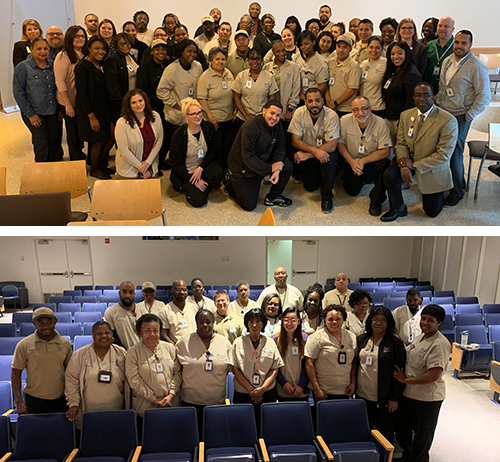
Popular Locations
- Yale New Haven Children's Hospital
- Yale New Haven Hospital - York Street Campus
- Yale New Haven Hospital - Saint Raphael Campus


The C. difficile bacterium is a small but mighty opponent, which is why it takes a team approach to defeat it. Partnering with Infection Prevention teams throughout the hospital, Environmental Services staff have played a key role in reducing C. difficile infection.
Yale New Haven Hospital strives to provide the highest-quality, safest care to all patients, and reducing healthcare-associated infections is one of our top priorities.
Successfully tackling these challenging infections requires an organized, team approach involving multiple disciplines and departments. A particularly successful collaboration has been the Environmental Services and Infection Prevention teams’ work to reduce C. difficile infections.
Over the past year, YNHH has seen a 20 percent decrease in C. difficile infections compared with 2018. That represents approximately 50 patients who were not harmed and did not have to suffer from the infection, said Steven Choi, MD, Yale New Haven Health chief quality officer.
“This improvement was the result of a team effort, but we recognize the tremendous work of our front-line Environmental Services associates and their management team in particular,” Dr. Choi said. “The improvement is even more remarkable in light of an increased patient census and all the challenges that brings to Environmental Services and all staff.”
While other factors are important in preventing C. difficile infection, careful, thorough cleaning and disinfection are critical, Dr. Choi said.
“We extend our gratitude to every one of our Environmental Services associates,” he said. “Sustaining such improvements is challenging, but we know the Environmental Services team is more than prepared to continue our efforts to ensure that each patient receives the high level of signature care Yale New Haven Hospital has come to define.”